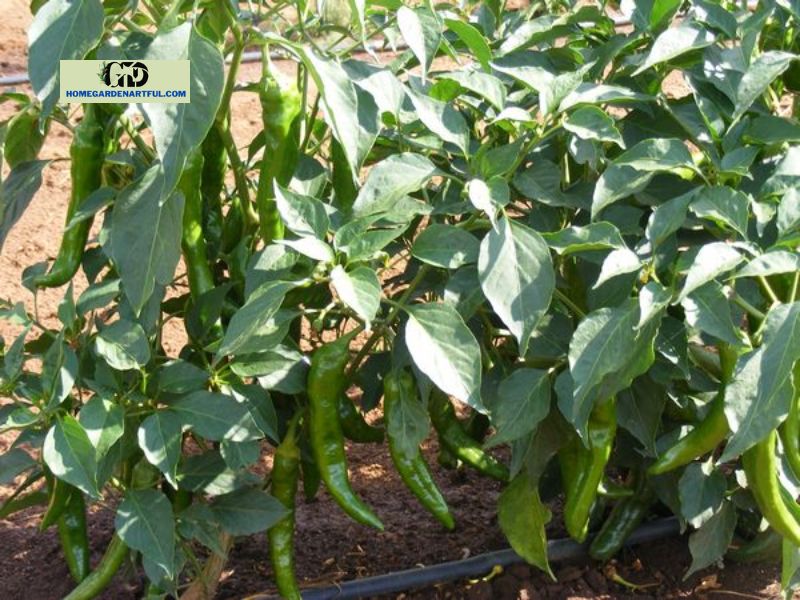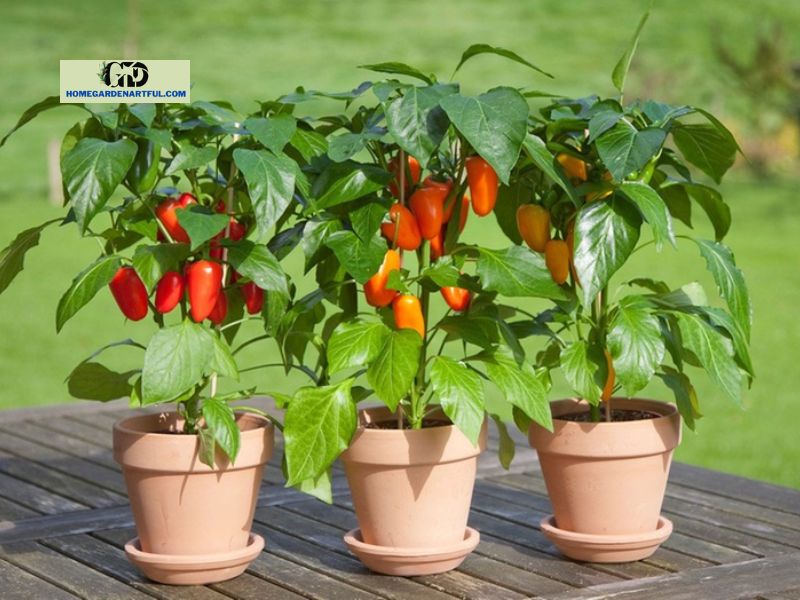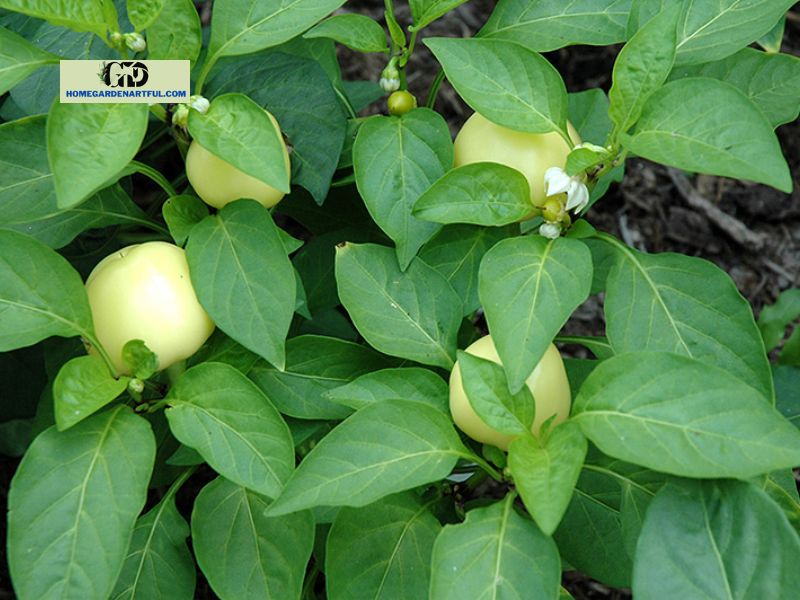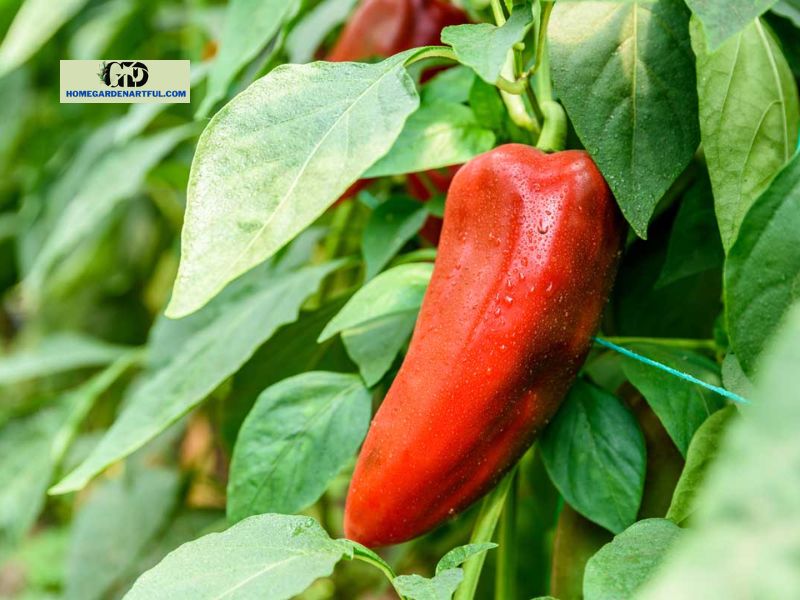Paprika For Plants: Is It Good For Plants? Have you ever thought about growing the vivid and delicious spice paprika in your garden? While paprika is best recognized for its culinary applications, it also has hidden promise as a natural plant growth and health stimulant. In this blog article, homegardenartful.com will delve into the realm of paprika and investigate its intriguing effects on plants. Join us on this trip as we discover the magic of paprika and uncover its secrets for proper plant care.
Paprika: A Spicy Spice with Untapped Potential
Paprika is a spice known for its rich flavor and brilliant color. It is made from dried and crushed Capsicum annuum peppers. Although it is most generally associated with Hungarian cuisine, paprika is popular throughout the world for its flexibility in dishes ranging from stews to marinades. However, paprika is more than simply a gastronomic delight; it also has a number of useful characteristics that can improve plant development and health.
Paprika For Plants: Is It Good For Plants?

The importance of paprika as a source of important nutrients for plants
Paprika contains a wealth of vital elements that plants require for growth and development. Paprika includes significant levels of vitamin C, iron, and potassium, among other nutrients. Vitamin C is an antioxidant that is essential for plant metabolism as well as overall health. Iron is required for the creation of chlorophyll, which aids in photosynthesis, whereas potassium supports root development as well as disease resistance.
Paprika’s antioxidant capabilities and their impact on plants
Paprika has powerful antioxidant qualities in addition to its nutritious richness. Antioxidants play an important role in neutralizing damaging free radicals within plants, thereby protecting them from oxidative stress as well as damage. Paprika is high in antioxidants, including carotenoids like beta-carotene and lutein. These antioxidants can boost plant resistance, immune system strength, and general growth.
Paprika as a natural insect repellent
Pest repellent is one of paprika’s outstanding properties. Capsaicin, the chemical responsible for this action, is found in variable amounts depending on the spice level of the paprika. Capsaicin is a natural repellent for pests like spider mites, aphids, and caterpillars. You can lessen bug infestations without using dangerous chemical pesticides by introducing paprika or capsaicin-infused treatments into your gardening regimen.
Using Paprika to Improve Plant Health

Using paprika as a soil conditioner
Plants benefit greatly from the addition of paprika to the soil. Its nutrient-dense composition can boost soil fertility and provide the nutrients required for healthy plant growth. Mix paprika with compost as well as sprinkle it directly on the soil surface to use it as a soil amendment. Aim for a moderate application, as excessive use may create pH changes or nutritional imbalances in the soil.
Plant Care using Paprika Water

You can easily make your own solution to reap the benefits of paprika water. Begin by dissolving one tablespoon of paprika powder in one gallon of water. To achieve good infusion, thoroughly stir the mixture. To make more strong solutions, boost the paprika powder ratio or steep the mixture for a longer period of time.
It is critical to dilute paprika water before applying it to your plants. Because different plants have different nutrient requirements, adjust the dilution ratio accordingly. A 1:10 ratio is a good starting point for most plants. Sensitive plants or seedlings, on the other hand, may require a more diluted solution.
Regular watering, foliar spraying, or soil drenching can all be used to apply paprika water. Make sure the stems, leaves, and soil are well-moisturized without becoming waterlogged. To reduce the risk of scorching the leaves in direct sunlight, use the solution in the morning or evening.
Making compost using paprika
Composting with paprika can speed up the decomposition process and provide critical nutrients to the final compost. Sprinkle paprika in between the organic elements as you assemble your compost pile. The nutrient richness of paprika, together with its microbial activity-promoting qualities, can speed up decomposition and provide nutrient-dense compost for your plants.
Summary
Paprika is not only a tasty spice, but it is also a useful ally in your gardening activities. Because of its nutrient content, antioxidant qualities, and pest-repellent properties, it is a diverse and natural option for stimulating plant development and health. You can use paprika to improve your plant care routine by integrating it into soil amendments, making foliar sprays, or composting with it. Accept the paprika paradigm and learn the miracles it may perform for your favorite plants.


